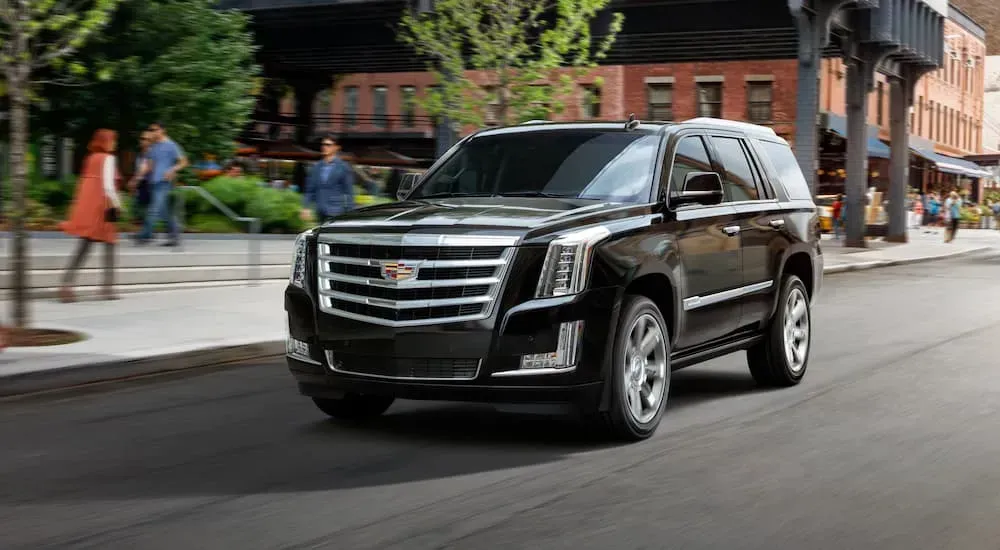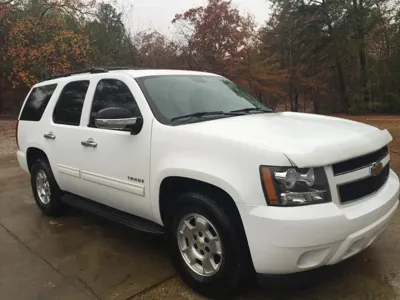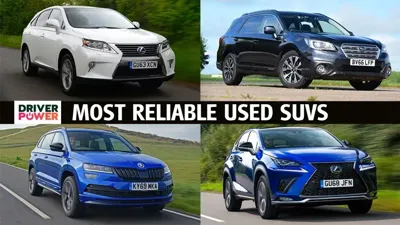The Ultimate Guide to Buying a Used SUV
In the U.S., the used SUV market is extensive and diverse, making these vehicles a popular choice for families, daily commutes, and outdoor adventures. Compared to new cars, used SUVs are often more affordable and offer benefits in terms of value retention, lifespan, and maintenance costs. Below is an overview of the key aspects of buying a used SUV in the United States, including benefits, considerations, popular models, and purchasing options.

1. Benefits of Buying a Used SUV
- More Affordable Pricing: Used SUVs generally come at a much lower price than new models, especially considering the high depreciation rate of new vehicles. A used SUV can offer excellent value at a reduced cost.
- High Resale Value: SUVs in the U.S. tend to retain their value well, especially certain brands like Toyota and Honda. Even on the used market, these SUVs hold their worth.
- Wide Range of Choices: Due to high demand for SUVs, the used market has a wide variety of models, from compact SUVs to full-sized options.
- Transparent Vehicle History: The U.S. has a mature used car market, with detailed vehicle history reports (like Carfax) that help buyers review maintenance, accident history, and more, minimizing purchase risk.
2. Key Considerations When Buying a Used SUV
- Check the Vehicle History Report: Examine the vehicle's maintenance records, accident history, and ownership changes. A vehicle with a clear history tends to be more reliable.
- Look at Maintenance Records: Especially in colder areas of the U.S., maintenance records directly impact an SUV's longevity. Regular servicing helps ensure reliable performance.
- Test Drive: Test driving is crucial to verify the SUV’s condition. Pay attention to acceleration, braking, suspension, steering, and transmission functions.
- Vehicle Age and Mileage: SUVs with low mileage and newer model years typically perform better, though they may come at a higher price. High-mileage SUVs are usually cheaper but may require more frequent maintenance.
- Select Reliable Brands and Models: Some SUV brands and models are more reliable in the used market. For example, the Toyota RAV4, Honda CR-V, and Ford Explorer are highly rated and known for durability.
3. Where to Buy a Used SUV
- Dealerships: Buying from authorized or certified dealerships is generally reliable, as they often provide limited warranties or extended warranties.
- Online Platforms: Popular online platforms (e.g., Carvana, AutoTrader, Cars.com) offer a wide range of options, along with tools like vehicle history reports and price evaluations.
- Auction Sites: Platforms like Copart and IAA offer many used SUVs at competitive prices, though these vehicles often require closer inspection.
- Private Sellers: Websites like Craigslist and Facebook Marketplace feature listings from private sellers. Pricing can be more flexible, but it’s important to thoroughly check the vehicle’s condition before purchase.
4.Exploring the Prices of Unsold Cars
The used SUV market is diverse, offering options for various budgets and needs. Here's an overview of typical pricing ranges based on SUV categories and model years:
- Compact SUVs: Affordable choices like the Honda CR-V, Toyota RAV4, or Nissan Rogue from model years 2015–2019 are available for $15,000 to $25,000. Older models (2010–2014) may cost as low as $10,000.
- Midsize SUVs: Popular models such as the Ford Edge, Jeep Grand Cherokee, or Subaru Outback from 2016–2020 are priced between $20,000 and $35,000. Older models can be found for $15,000 or less, depending on condition and mileage.
- Luxury SUVs: High-end options like the BMW X5, Lexus RX, or Mercedes-Benz GLE from recent years (2018–2021) often cost between $35,000 and $60,000. Models older than 2015 can sometimes be found for under $30,000.
- Large SUVs: Spacious options like the Chevrolet Tahoe, Ford Expedition, or Toyota Sequoia typically range from $30,000 to $50,000 for models from 2016–2020. Older models may be available for $20,000 to $30,000.
Prices may vary based on factors such as mileage, trim level, condition, and location. For budget-friendly options, check online platforms like CarMax, AutoTrader, or Carvana, as well as local dealerships that offer certified pre-owned vehicles.
5. Conclusion
Buying a used SUV in the United States can be a cost-effective and practical choice. Whether for daily commuting, family use, or outdoor adventures, a used SUV offers solid performance and great value. During the selection process, buyers should carefully inspect the vehicle’s history and condition, choose reputable brands, and purchase through trustworthy channels to ensure a positive buying experience and reliable after-sale support.
Featured Articles
 The Essential Guide to Buying a Used SUV
The Essential Guide to Buying a Used SUV The Ultimate Guide to Buying a Used SUVIn the U.S., the used SUV market is extensive and diverse, making these vehicles a popular choice for families, daily commutes, and outdoor adventures. Compared to new cars, used SUVs are often more affordable and offer benefits in terms of value retention, lifespan, and maintenance costs. Below is an overview of the key aspects of buying a used SUV in the United States, including benefits, considerations, popular models, and purchasing options.
The Ultimate Guide to Buying a Used SUVIn the U.S., the used SUV market is extensive and diverse, making these vehicles a popular choice for families, daily commutes, and outdoor adventures. Compared to new cars, used SUVs are often more affordable and offer benefits in terms of value retention, lifespan, and maintenance costs. Below is an overview of the key aspects of buying a used SUV in the United States, including benefits, considerations, popular models, and purchasing options. Top Dependable Used SUVs for 2025Finding a reliable used SUV is a top priority for many American buyers in 2025. Whether you're looking for fuel efficiency, off-road capability, or family-friendly features, the used SUV market offers a range of dependable options.
Top Dependable Used SUVs for 2025Finding a reliable used SUV is a top priority for many American buyers in 2025. Whether you're looking for fuel efficiency, off-road capability, or family-friendly features, the used SUV market offers a range of dependable options.